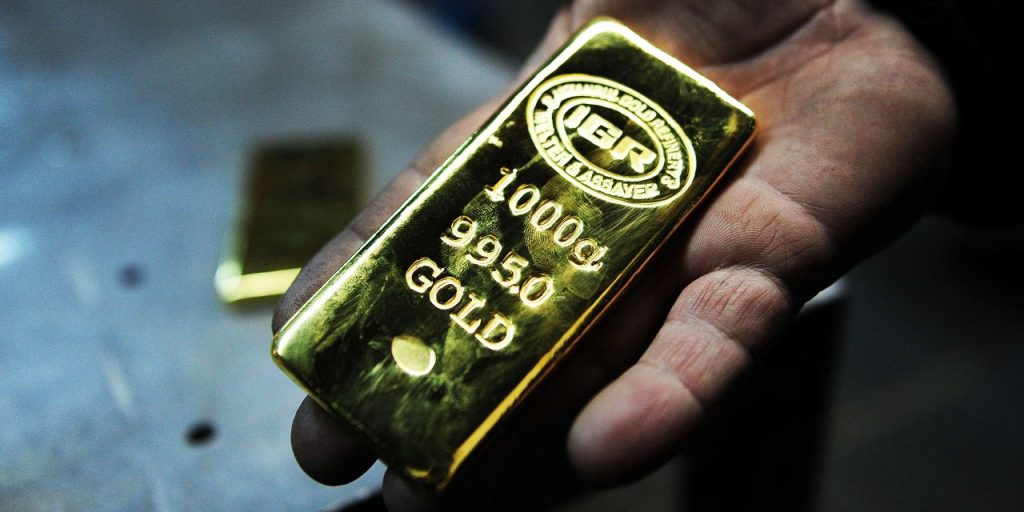Gold prices ended lower on Thursday, with prices stretching their losses into a second straight session, pressured by strength in the U.S. dollar as investors parsed this week’s U.S. inflation data.
Prices for the precious metal had traded higher in early dealings, supported in part by concern about the debt ceiling debate in Congress, while silver and copper futures dropped sharply for the session on concerns about the prospects for metals demand from China.
Price action
-
Gold for June delivery
GC00,
-0.21%
GCM23,
-0.21%
declined by $6.60, or 0.8%, to settle at $2,020.50 per ounce on Comex. -
Silver for July
SI00,
-0.10% SIN23,
-0.10%
fell by $1.23, or 4.8%, to $24.42 per ounce, with prices based on the most-active contract posting the largest daily percentage drop since Feb. 3, according to Dow Jones Market Data. -
Copper for July
HGN23,
-0.08%
declined by 13 cents, or 3.4%, to settle at $3.71 per pound, the lowest finish since Nov. 29. -
Palladium for June delivery
PAM23,
-0.68%
declined by $51.10, or 3.2%, to $1,554 per ounce, while platinum for July
PLN23,
-0.83%
fell by $14.10, or 1.3%, to $1,105 per ounce.
Market drivers
The U.S. Labor Department on Thursday reported that U.S. producer prices rose 0.2% in April. That was below the 0.3% rise forecast by economists polled by The Wall Street Journal.
In the 12 months through April, the PPI increased 2.3%. It follows a 2.7% gain in March. This is the lowest rate since January 2021.
“The PPI report again looks like success for the Fed’s controlled demolition program to bring down inflation,” wrote Jason Schenker, president of Prestige Economics, in report released Thursday.
“Despite the easing in PPI inflation, solid jobs data and high CPI inflation could give the Fed a green light to implement a 25 basis point rate hike” at the June Fed meeting, Schenker said. “There is reason to believe that the decline in year-on-year producer inflation will likely presage a further easing of consumer inflation rates.”
Against this backdrop, the dollar strengthened against most major currencies, with the ICE U.S. Dollar index
DXY,
up 0.6% at 102.09 in Thursday dealings. Strength in the greenback can put pressure dollar-denominated prices of gold.
The slowdown in producer-price inflation spurred a drop in bond yields as the stock market declined and “you might expect gold prices to be firm, if not rising,” Adrian Ash, director of research at BullionVault, told MarketWatch. Instead, gold’s drop “suggests that speculators are maybe losing enthusiasm for another attempt at breaking new all-time highs right now.”
Still, in the long term, “that’s not bad thing for the precious metal,” he said. “Gold looks to be confirming and consolidating the latest rise in its underlying price,” which continues to climb.
Despite Thursday’s pullback in gold, futures prices for the metal settle above the $2,000 mark for an eighth session in a row.
Silver and copper, meanwhile, were standouts in the Comex metals market, with silver marking its biggest one-day percentage decline in over three months and ending the session at its lowest price since November.
Read more: Silver, copper futures drop after ‘benign’ China inflation data
Overall, gold prices have benefited from a number of factors recently, including anxieties surrounding Congress’s struggle to raise the U.S. debt ceiling, as well as some expectations that the Fed has finished hiking interest rates.
Last week, the yellow metal settled at its second-highest level on record, with the most-active contract finishing Thursday’s session at $2,055.70 per ounce on Comex.
Read the full article here
